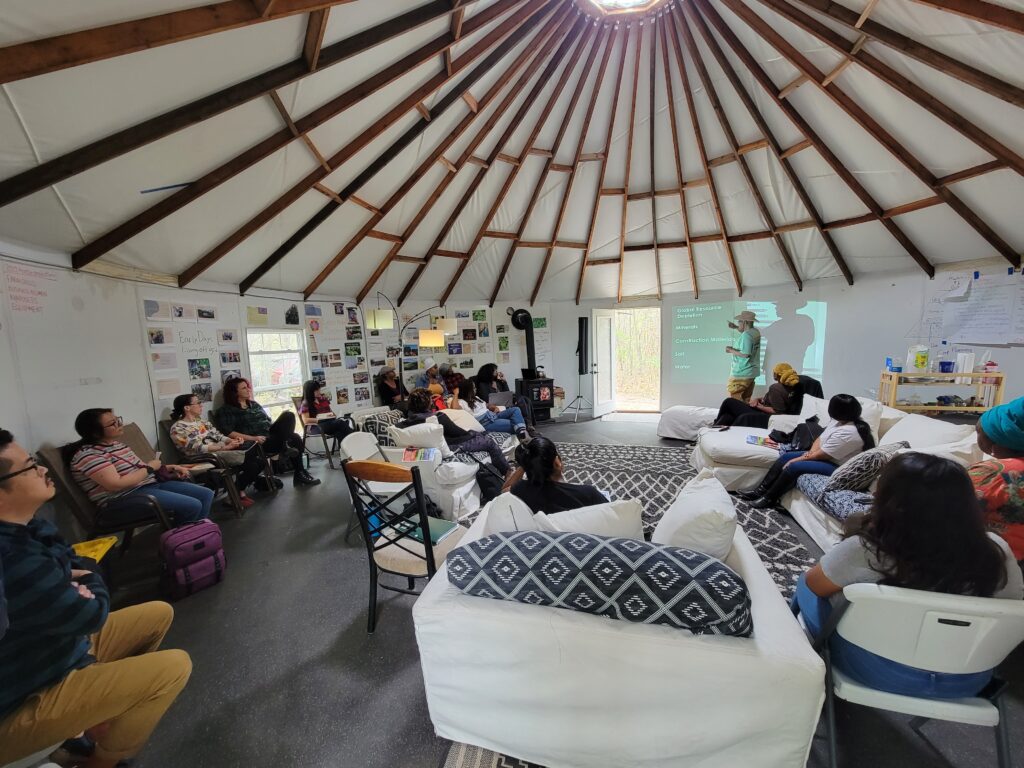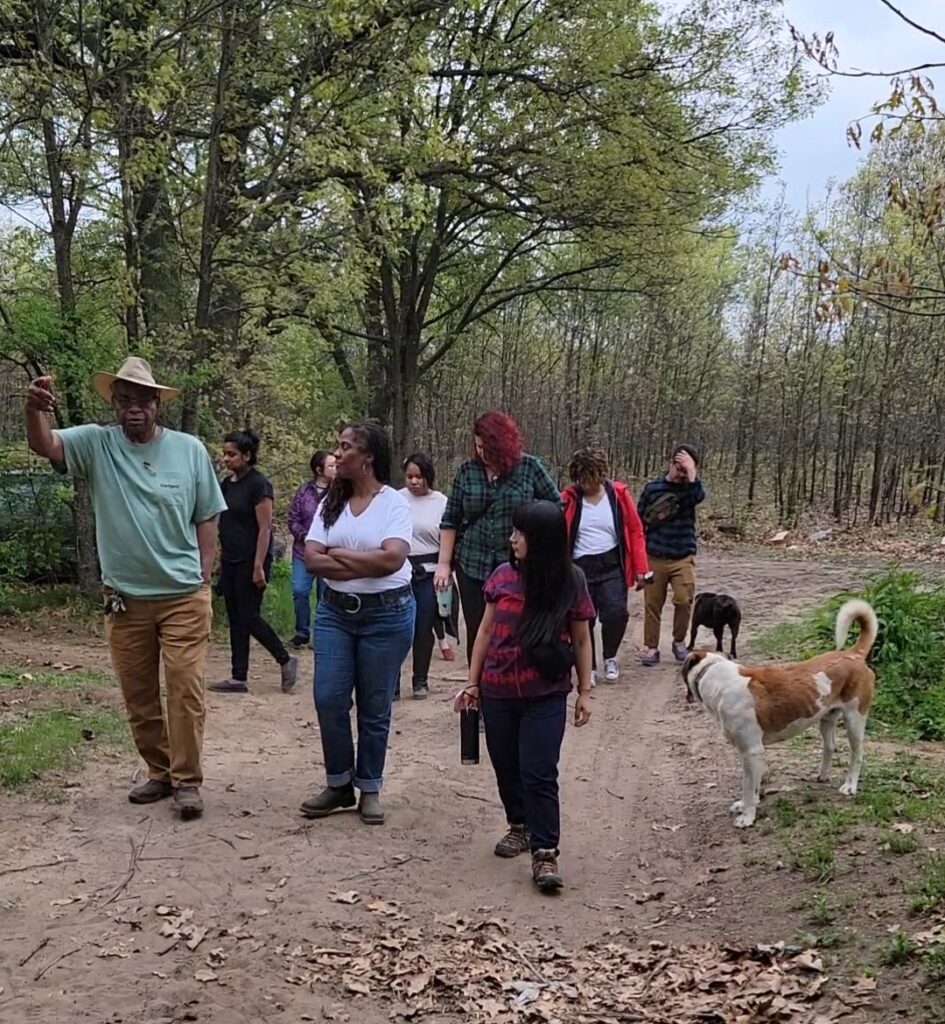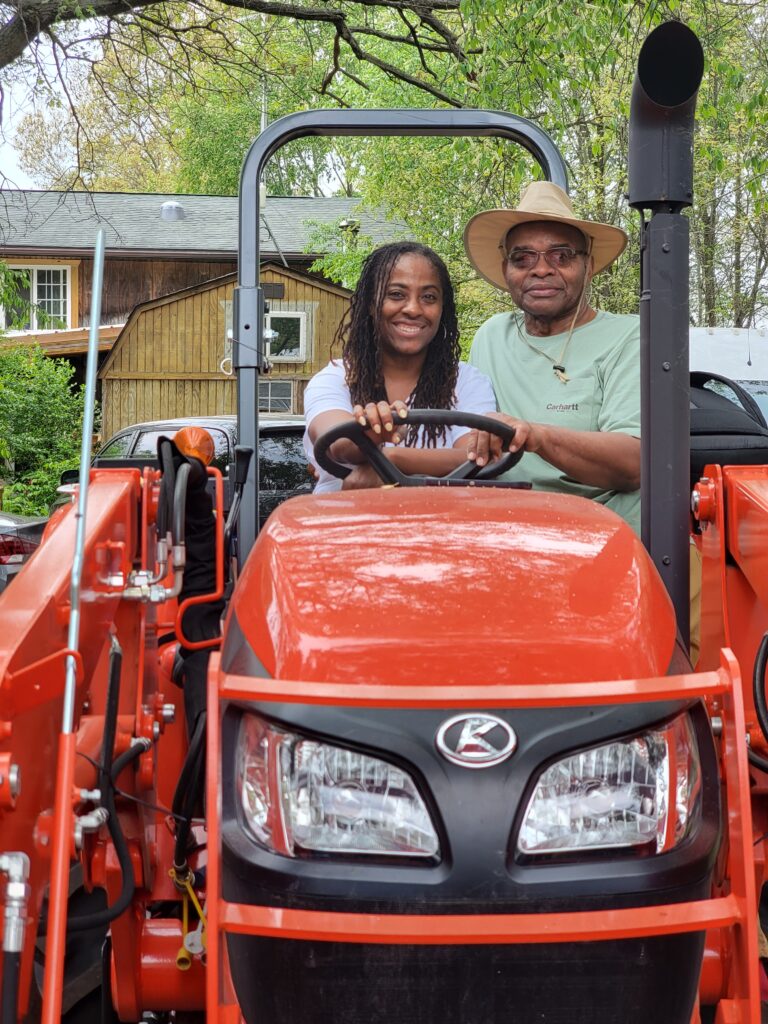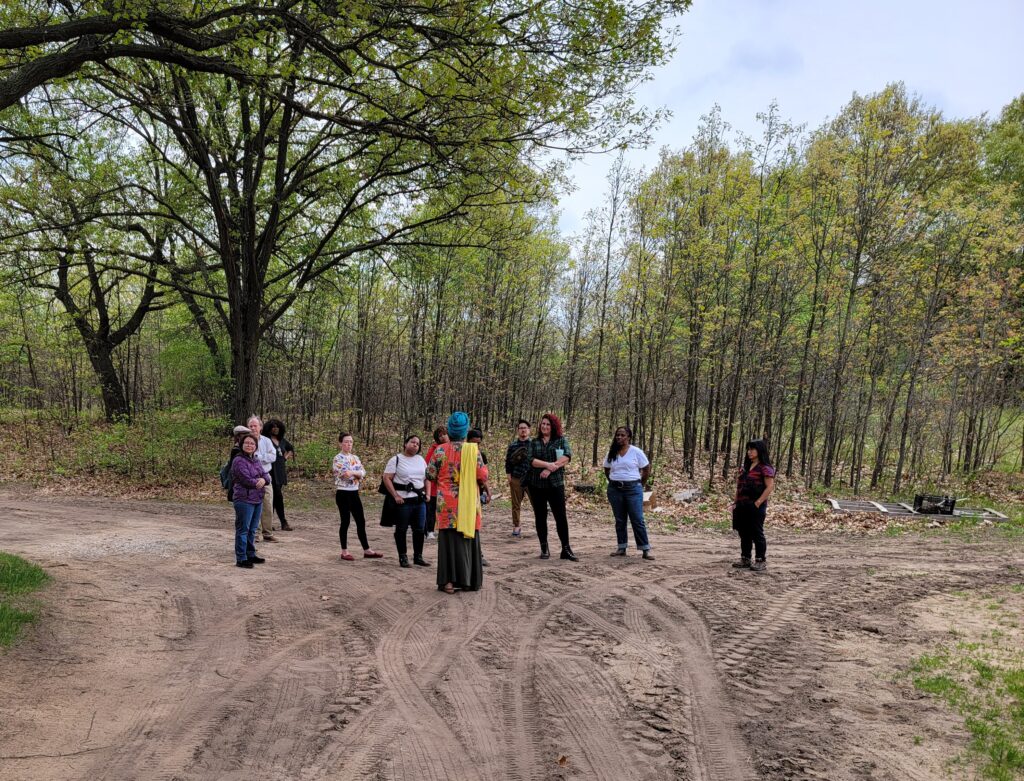Restoring Roots: Our Journey to Pembroke Township
Pembroke Township was founded in the 1860s by runaway slaves, Pap and Mary Eliza Tetter, and quickly became a flourishing Black agricultural hub. These dedicated families created a local food infrastructure, complete with on-farm u-pick orchards, fields, and ag tourism. Their commitment to organic and biodynamic farming practices preceded the widespread use of these terms, resulting in ecological richness and biodiversity that remains unparalleled in many parts of our country.
However, it is disheartening to note that less than 50% of the land in Pembroke Township is currently owned by descendants of these farming families. That’s why Black Oaks Center of Pembroke has embarked on a mission to restore at least 1,000 acres of farmland.
We are thrilled to share with you the vibrant and transformative experience we had during our recent visit to Pembroke Township, Illinois and our time spent with the folks at Black Oaks.
As we drove into this historic town, each member of our team had their own unique emotions and observations, which added depth and color to our journey. The moment we entered Pembroke, a sense of peace enveloped us. The tranquil surroundings and the picturesque landscape immediately struck a chord within us. It was a stark contrast to the bustling city life we were accustomed to, and the serenity of the town allowed us to connect deeply with the natural beauty of the area.
However, it is important to acknowledge that not all of us were immune to the biases that can sometimes cloud our perceptions. Some team members admitted feeling a sense of unease, rooted in preconceived notions of what small towns might be like. But as we immersed ourselves in the community, those concerns dissolved, replaced by warmth and genuine hospitality from the people of Pembroke.
One of the remarkable aspects that caught our attention was the change in the color of the soil as we journeyed further into Pembroke. The rich, black soil, known for its fertility and connection to the region’s agricultural legacy, gradually transitioned into a deep brown almost sandy-looking hue. This change served as a physical reminder of the significance of farming in this community, evoking a deep appreciation for the land and the generations of farmers who have worked it.
We had the privilege of engaging in enlightening conversations with the co-founders of Black Oaks Center, Fred Carter, and Dr. Jifunza Wright-Carter. Their passion for preserving the heritage of farming in Pembroke Township was evident in every word they spoke. They shared stories of the community’s history, the challenges faced by farmers, and their vision for the future.
As we listened to their stories and witnessed their unwavering dedication, we were inspired by the incredible work being done by Black Oaks Center and their partners. Together, they are fostering a renewed sense of pride in the farming traditions of Pembroke. They are reclaiming the land, implementing sustainable practices, and revitalizing the local food system.
Our team was deeply moved by the resilience and commitment of the farming families in Pembroke Township. Their stories and experiences echoed through the fields and orchards, serving as a reminder of the generations of Black farmers who have worked this land with love and dedication.
This visit to Pembroke Township is an integral part of the Grand Victoria Foundation’s commitment to place-based racial justice and equity philanthropy. We firmly believe that it is crucial to visit and engage with Black communities across Illinois, listening to and learning from the people who live and work there. By amplifying their voices and supporting their initiatives, we can help build a more just and equitable future for these communities. We are exploring possibilities to support the conservation and restoration efforts of Black Oaks Center and the Pembroke Township community.
Join us as we continue to explore more of the 81 Black population centers listed in the GVF Illinois Racial Justice & Equity Study. Our next visit will be to East St. Louis this September. We are excited to take you along with us on this journey.
Images From The Day



